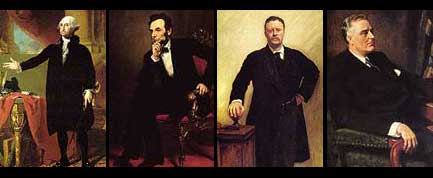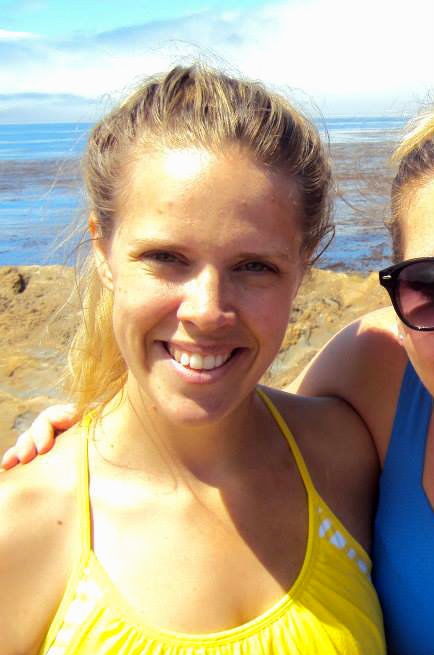What it Takes to Be President

Get the world’s most fascinating discoveries delivered straight to your inbox.
You are now subscribed
Your newsletter sign-up was successful
Want to add more newsletters?

Delivered Daily
Daily Newsletter
Sign up for the latest discoveries, groundbreaking research and fascinating breakthroughs that impact you and the wider world direct to your inbox.

Once a week
Life's Little Mysteries
Feed your curiosity with an exclusive mystery every week, solved with science and delivered direct to your inbox before it's seen anywhere else.

Once a week
How It Works
Sign up to our free science & technology newsletter for your weekly fix of fascinating articles, quick quizzes, amazing images, and more

Delivered daily
Space.com Newsletter
Breaking space news, the latest updates on rocket launches, skywatching events and more!

Once a month
Watch This Space
Sign up to our monthly entertainment newsletter to keep up with all our coverage of the latest sci-fi and space movies, tv shows, games and books.

Once a week
Night Sky This Week
Discover this week's must-see night sky events, moon phases, and stunning astrophotos. Sign up for our skywatching newsletter and explore the universe with us!
Join the club
Get full access to premium articles, exclusive features and a growing list of member rewards.
Who would make a better president — a man with more than 30 years of experience in Congress or one with about six?
If you chose the former, congratulations: You've elected James Buchanan, one of the least popular presidents in U.S. history, over Franklin D. Roosevelt.
Fan-favorite Abraham Lincoln also had little political experience before running for president, failing both as a businessman and a farmer, but George Washington had plenty.
So what kind of qualifications make for a successful POTUS, or president of the United States?
On Nov. 4, Americans will vote to select their 44th president. The two candidates, Republican John McCain and Democrat Barack Obama, are both current U.S. senators, but certainly bring different backgrounds to the table. Pundits may have their say and analysts can crunch their numbers to forecast a winner, but history may be just as interesting (and maybe as accurate) as a presidential prognosticator.
There's no clear pattern, as it turns out, among the 42 men who eventually became president (Grover Cleveland was both our 22nd and 24th). Each took a unique path to the Oval Office. Educated guess
For starters, George Washington never went to college. In his defense, schools of higher education were in short supply in early 18th-century America.
Eight other presidents besides Washington didn't get an undergraduate degree, including relatively "modern" prez Harry Truman. Thirty-four others did go on to college or beyond, yielding a Rhodes Scholar (Bill Clinton) and a Ph.D. in political science (Woodrow Wilson) among them.
Harvard was the school of choice for the most past presidents, with seven POTUS alumni, followed closely by Yale, with five.
If he won, Obama would boost Harvard's count to eight, while a McCain victory would put a second notch in the column for the United States Naval Academy, following in the footsteps of Jimmy Carter.
McCain would also be continuing a long tradition of presidents who served in the military, ranging from a stint in the National Guard (current President George W. Bush) to five-star Generals (Washington, Grant and Eisenhower). With the exception of Bill Clinton, every U.S. president since Franklin D. Roosevelt served in some capacity.
Other qualifications Objective: dynamic self-starter seeks position as leader of the free world. If an executive branch HR department kept partial stats on the job experience section of presidents' pre-election resumes, they would something read like this:
- Lawyers: 26
- Teachers: 8
- Peanut Farmers: 1 (Carter)
- Fashion models: 1 (Ford)
- Actors: 1 (Reagan)
- Major League Baseball Owners: 1 (George W. Bush)
Between their out-of-Washington day jobs and the White House, most did, of course, spend some time signing documents in a state legislature or Congress. The nature or length of their tenure did not seem to affect their popularity, however.
Out of the 16 two-term (or more, in the case of FDR) leaders, 10 of those never served in the Senate or the House of Representatives, long considered the engine of U.S. law and government.
Vice president was also a popular gig to hold before becoming president, with 14 of our past commanders in chief holding the veep post before going on to the big show.
Some vice presidents ran for president and won and a few took over when a sitting president was assassinated or died in office. Gerald Ford has the dubious distinction of being the only president never to be elected by U.S. voters. Instead, he was appointed vice president by Richard Nixon in 1973 when Spiro Agnew stepped down, and then became president when Nixon resigned in 1974.
Age = wisdom?
If 72-year-old McCain wins the Nov. 4 election, he will be the oldest person ever elected president. At 47, Obama wouldn't be the youngest, but close. Only JFK, elected at 43, Clinton (45), Grant (46) and Teddy Roosevelt, who ascended the office at 42 after the assassination of McKinley, were younger.
Four other presidents took office in their 40s; more than half of those elected presidents were in their 50s; and 10 were in their 60s.
John McCain would be the first septuagenarian president-elect, older even than the average age of death for all past presidents, even with those four who were assassinated removed from the count.
- Quiz: Bizarre U.S. Presidential Elections
- The Most Powerful Women Leaders
- The Science of Politics
Get the world’s most fascinating discoveries delivered straight to your inbox.
 Live Science Plus
Live Science Plus











